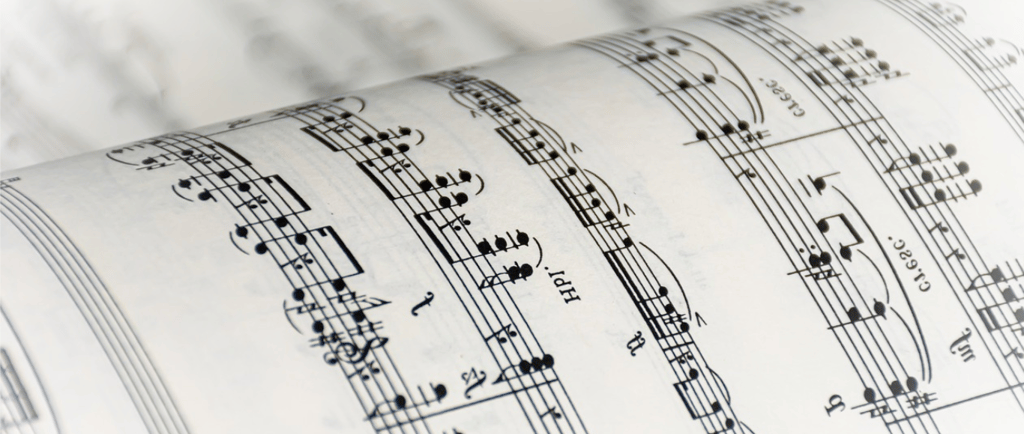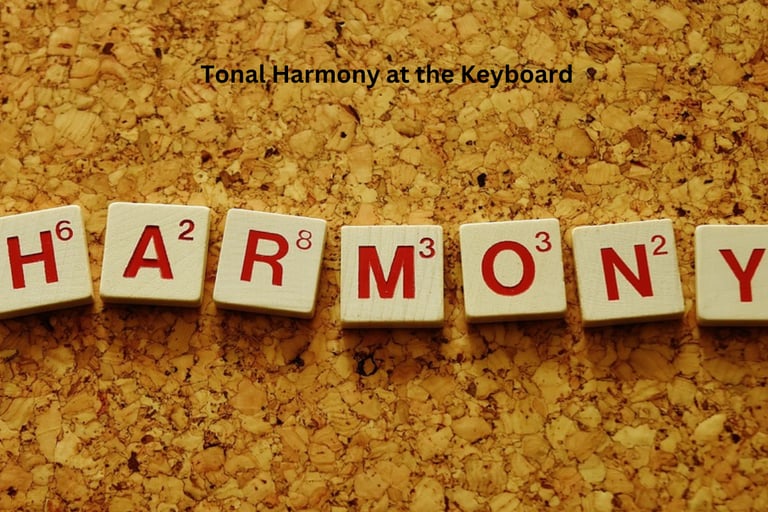Top 10 Underrated Music Theory Books for Beginners
The theory of music for begginers
1/6/20254 min read


"Top 10 Underrated Music Theory Books for Beginners"
Introduction
Music theory can be a muddle for most beginners; it's that map that makes the art of sound possible. The right book turns what otherwise would have been an awful journey into an inspirational one. While most mass books about music theory are popular subjects, a few hidden gems offer invaluable insight and worth. Here are the top 10 underrated music theory books for beginners that might fit your learning style perfectly.
What Is the Underrated in Music Theory?
Music theory books are underrated for many reasons. Their value, however, is not inferior to the popularity of other books.
Why the book is underrated:
• Low Marketing: There may be no campaigns or reviews made to a wide range of people.
• Specialist Books: Titles that cover only one particular type of instrument or style of music are probably less in demand.
• Substantive Content: Because of their depth and clarity, books like this often get overlooked and buried under better-known titles.
Which is the Best Music Theory Book?
Best of all is always a question of personal need.
• Your Learning Preference: Diagrams, black-and-white text, or lots of practice?
Seek Relatively Easier Language for Novice Learners: Avoid books with heavy jargon in the introduction.
Review Auxiliary Material: Books that use audio and video materials are helpful for learning the entire concept in a real-life application.
Least Popular Top 10 Music Theory Books for Novice
Humour and clarity make even the most complicated ideas seem simple. Therefore, this book is treasured by a completely new guy. It is loads of fun and practical, a book that structures are really beginning to make learners keen on learning.
2. Music Theory Made Easy by David Harp
David Harp Approach: This one is much more on the lines of practical applicability than abstract concepts; hence best for the self-learner
3. Practical Theory Complete by Sandy Feldstein
Workbook-type resources are full of exercises and quizzes. They work well for learners who prefer a hands-on practice approach.
4. Music Theory for the Bass Player by Ariane Cap
Ariane Cap composes music theory for bassists, providing technical knowledge and instrument insights. This book will be worth gold to bass players.
5. Alfred's Essentials of Music Theory
A comprehensive guide with exercises for practice, best for students who like lessons arranged
6. The AB Guide to Music Theory by Eric Taylor
The book is written in simple and plain terms, so it is apt for starters as well as the examination candidates
7. Nicolas Carter: How to Read Notation, Music Theory from Beginner to Expert
This self-help book keeps readers moving without jerks-the learning curve is smooth.
8. Jazzology-Encyclopedia for the Theory and Analysis of All Styles of Music
This is specific to jazz, and this brings refreshing new perspectives for anybody interested
9. Gary E. Wittlich and Floyd K. Grave: Tonal Harmony at the Keyboard
Specific book for keyboardists, bridge theory and practice.
For the serious student, it will give depth with clarity appropriate even for motivated beginners.
Summary of Each Book in Detail
• Chapters are very readable, good writing, fine exercises.
• For absolute beginners who want a fun introduction.
• Includes: Breaks scary topics into little lessons
2. David Harp - Music Theory Made Easy
• Features: Pragmatic orientation, simple words
• Best For: Autodidact students who love clear and plain texts
• Emphasizes: Rely more on real-life situations
3. Practical Theory Complete - Sandy Feldstein
• Features: Workbook form with quizzes and exercises
• Best For: Kinaesthetic learning individuals who learn best with more active content.
• Emphasizes: He talks about each conceptual element very clearly.
4. Music Theory for the Bass Player - Ariane Cap
• Focus on: Individual Bassists, the graphical charts.
• Suitable for: Beginner.
• Contains: It has its corresponding theory for bass.
5. Alfred's Essentials of Music Theory
• Focus: Audio CDs along with lesson-by-lesson instruction included.
• Contains: Best one for those in a structured system of learning,
• Has focused: Review materials and exercises; test material there too
6. • Contains: Clear explanations, test-oriented material
• Best For: Students who are taking music tests.
• Highlight: Great balance between brevity and comprehensiveness.
7. Music Theory: From Beginner to Expert by Nicolas Carter
• Features: Gradual increase from the fundamentals to more sophisticated material.
• Best For: Anyone who needs something that grows with them.
• Highlights: Provides tips on how to put theory into practice in composition.
• Features: Jazz theory, exercises for all instruments.
• Best For: Jazz enthusiasts and future improvisers.
• Features: Deep dive into jazz harmony and melody.
9. Tonal Harmony at the Keyboard by Gary E. Wittlich and Floyd K. Grave
• Features: Keyboard exercises, theory applications.
• Best For: Piano players and keyboard.
• Features: A combination of deep theoretical background with practical exercise.
• Features: Definitive guidebook with excellent examples.
• Best For: True analysis nerds.
• High Points: It is perfect for a learner wanting to venture further than this book.
Advantage of learning through obscure books of music theory
Why bother with the one nobody knows about when they could read an extremely famous, legendary one instead?
Alternative Learning Style: There is an approach in the pages of most of these books that suits the learning method better to this particular student's taste.
• Better Illustrative Description: They elaborate on a variety of topics in greater detail or express them differently, which will make them easily comprehendible by students when explaining complicated matters.
Music Theory Student's Error
The student has made inevitable mistakes while first getting started in music theory.
Practical Ignorance: Theory without practice is like a ship without a sail. Always try to apply whatever you learn.
How Best to Learn from Books on Music Theory
Make Notes: Noting down major points helps them to be ingrained in memory.
• Books with Internet Resources: Sometimes, the videos or audio clips will explain things.
• Practice Daily: Spend a couple of hours a day doing exercises.
FAQs
1. Why are some books in music theory underrated?
Well, those underrated books usually get less promotion but are full of quality content and an exclusive teaching approach.
2. Can these books be used for self-study?
Yes, most books for book learning are by independent learners.
3. How many months does learning music theory from the books take?
It depends on one's steadiness and seriousness about practising. After months of regular practice, one can make significant progress.
4. Can these books be used with an instructor?
Yes! They are fantastic supplements to instruction.
5. which would you recommend to someone with no experience playing the instrument?
Of the bunch, Complete Idiot's Guide to Music Theory is by far the most fun and accessible to start with.



